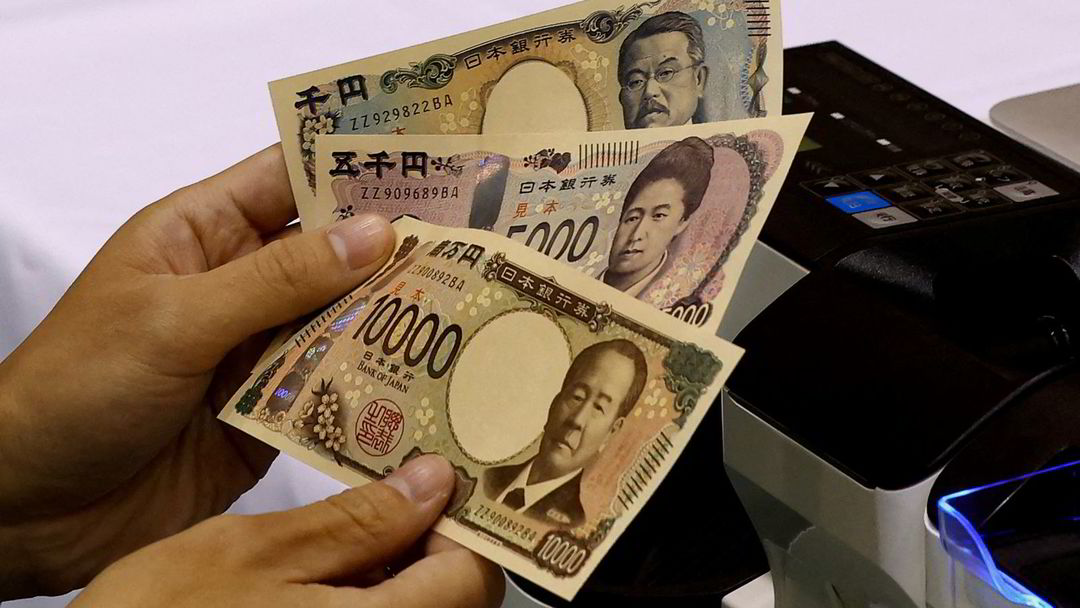The Tokyo Stock Exchange’s Nikkei fell more than 1.9 percent in the first hour of trading on Wednesday morning. Since mid-September, the main index has fallen by more than eight percent. There was a significant decline after the stock market index began the third quarter at the highest level since the summer of 1990.
The Kospi index on the Seoul Stock Exchange fell more than 2.2% – led by suppliers going green, including LG Energy Solution, Samsung SDI and industrial group companies Posco. The Korean currency fell to 1,361 won against the dollar – the lowest level this year.
Chinese stock exchanges are closed all week, but the Hang Seng Index on the Hong Kong Stock Exchange continues to decline. Since the new year, the index, which is dominated by companies exposed to the Chinese economy, has fallen by 14.7 percent.
Ready to take action
The Japanese currency fell to 150 yen against the US dollar on Tuesday, its weakest level in a year. It suddenly rose to 147. There is speculation that the Japanese Ministry of Finance intervened in the market.
– I refrain from commenting on whether there is intervention in the foreign exchange market. We will maintain our current approach to dealing with excessive fluctuations in currency rates, Masato Kanda, Deputy Finance Minister for International Affairs, said on Wednesday morning, at a press conference.
Finance Minister Shunichi Suzuki denied that there was a specific level at which the Finance Ministry would intervene. He reiterated on Wednesday that “volatility is what matters most.”
– Exchange rates should move stably, driven by markets and reflect underlying conditions. Sharp movements are undesirable. The government is closely monitoring market developments. We are ready to take necessary measures against excessive volatility. “We are not ruling out any options,” Suzuki said at a press conference.
– Psychological effect
The currency fell again on Wednesday morning, with the yen again approaching 150 yen to $1.
– I can’t say for sure whether they intervened or not. But if they do, the main focus will be on how often they will intervene and how much they will spend. I think Kanda is trying to increase the psychological impact even in small amounts by keeping his mouth shut, chief economist Hideo Kumano at the Dai-ichi Life Research Institute tells Bloomberg.
The statements of Japanese government representatives are seen as psychological warfare in the currency market. It’s not unusual. In the 1990s, Deputy Finance Minister Eisuke Sakakibara was nicknamed “Mr. Yen” because of his influence in global currency markets.
– It now seems that the fear of intervention takes a large part of the heavy burden. Once they intervene, it is as if they have put their cards on the table, Jane Foley, head of foreign exchange strategy at Rabobank, tells the Financial Times.
Impact force
The yield on ten-year US government bonds rose to its highest level since 2007 on Tuesday at 4.73 percent. The ten-year interest rate in Japan was 0.78 percent on Wednesday morning. This is three times higher than a year ago, when the 10-year interest rate was 0.25 percent.
The ministry has the leverage to continue intervening, but ultimately the direction of the exchange rate will be determined by what happens to interest rate differentials, says Vice President of Market Economics at Capital Economics, Jonas Goltermann, in a report.
Japan has foreign exchange reserves of more than $1.1 trillion that can be deposited. The analysis and consulting company compares the sudden movements of the currency to what happened last fall when the Ministry of Finance intervened in the currency market on two occasions. Confirmation came only later.
The latest episode follows a gradual tightening of official statements in recent months, as the yen continued to weaken in response to the widening interest rate differential with the United States. Golterman says that the decision to intervene at the 150 level, which is the same level that happened last year, reinforces our opinion that the decision-makers want to draw a line in the sand.(conditions)Copyright Dagens Næringsliv AS and/or our suppliers. We would like you to share our cases using links that lead directly to our pages. No copying or other use of all or part of the Content may be permitted except with written permission or as permitted by law. For more terms see here.





